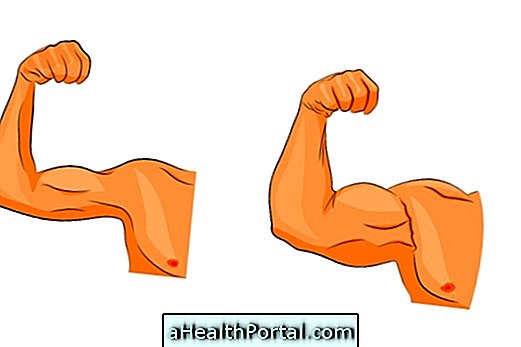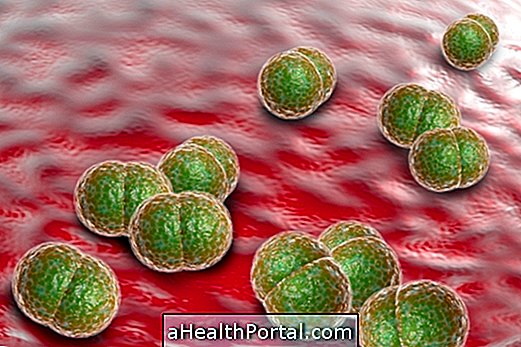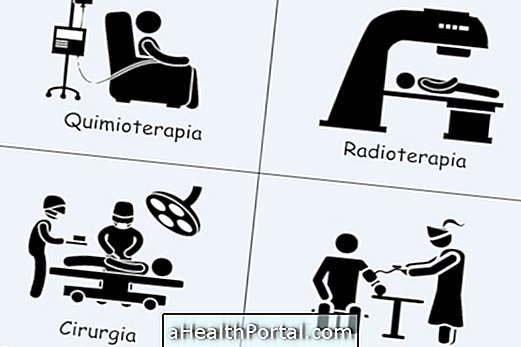The muscular hypertrophy corresponds to the increase of the muscular mass that is the result of the balance between three factors: practice of intense physical exercise, adequate food and rest. Hypertrophy can be achieved by anyone as long as you follow a training plan that is right for your goal, have a correct diet and rest the muscle groups at least 24 hours before working again because hypertrophy does not occur during training, but during rest.
The process of hypertrophy must be accompanied by a qualified physical education professional, in addition to nutritionist so that the food is in agreement with the training and that the person does not suffer consequences, such as cramps or alteration in the functioning of some organs. See 10 the best foods to gain muscle mass.

As it happens
During exercise, muscles undergo minor injuries to their fibers and, after training, the body begins to replace and repair lost or damaged muscle fibers, promoting increased muscle size. The process of "injury" of the muscle fibers happens due to the muscular stress, which may be due to the overload, that is, due to the performance of exercises with a load higher than the muscles are accustomed, which induces a process of muscular adaptation and hypertrophy.
The stress process can also be perceived due to the burning sensation of the muscle during or after performing the exercise. This happens due to the swelling of the muscle cells because of the accumulation of blood, glycogen and other substances inside, which stimulates the increase of muscle mass. Check out some tips for gaining muscle mass.
How to train for hypertrophy
The training for hypertrophy should be established by a qualified physical education professional according to the characteristics of the person. Usually this type of training is done intensely, at least 3 times a week and as the use of high load, to potentiate the process of hypertrophy. Check out a complete workout to gain muscle mass.
Not only the hypertrophy, but the practice of physical exercises in general have a number of benefits, such as increased physical disposition, decreased body fat percentage, disease prevention and improved cardiorespiratory capacity. It is important that exercises for hypertrophy work the whole body, but with rest of at least 24 hours so that the muscle group worked can be recovered.
A common mistake in gyms when it comes to hypertrophy is for men to train only upper limbs and women only lower limbs. In the long run this can result in asymmetry of the body, back pain and, in the case of men who do not train legs, can result in osteoarticular problems, since the leg is responsible for the body's support.
The process of hypertrophy is slow, with the first results appearing after 6 months. Therefore, it is important to persist in exercise and eating. See how long it takes to gain muscle mass.
What to Eat to Gain Muscle Mass
The diet for hypertrophy should be done by a nutritionist and consists of consuming more calorie than is spent, and is normally rich in proteins, as they aid in the recovery process of muscle fibers.
It is also important to consume good carbohydrates and fats so that energy is generated so that the workout can be intense and the person is still available throughout the day. Check out a complete menu for gaining muscle mass.























